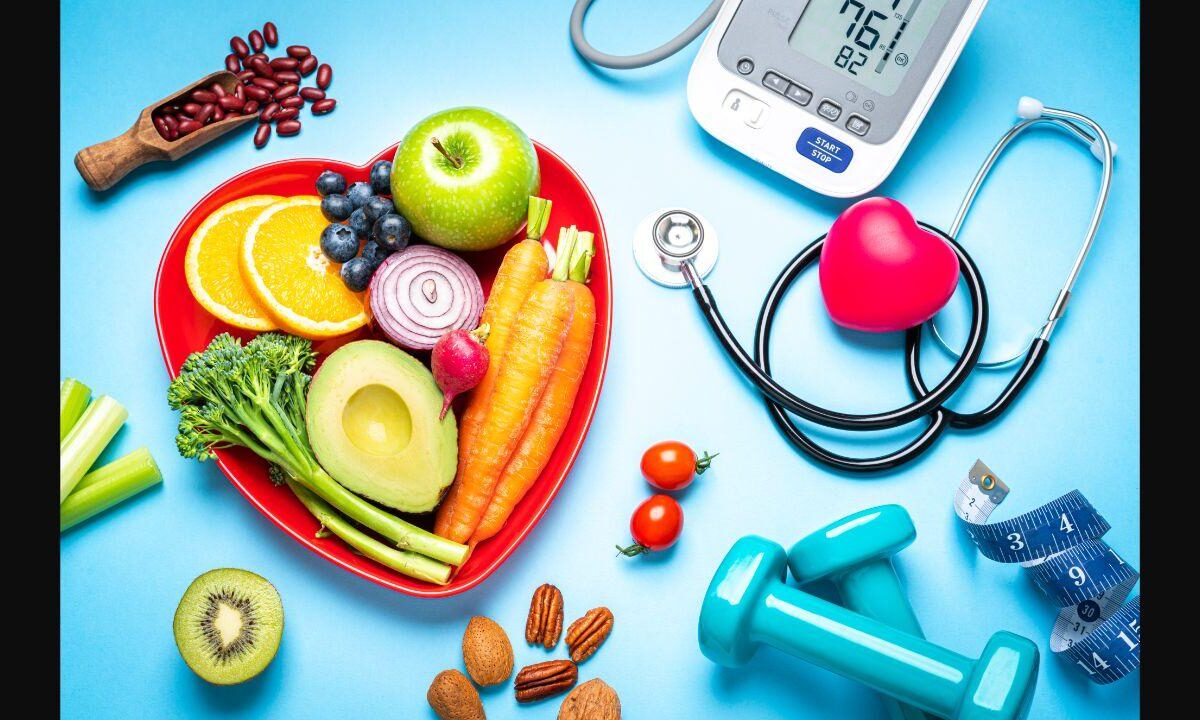It is more important than ever to take control of your cardiovascular health no matter your age. Last 2 years of COVID-19 was not just the leading cause of death in the world and even that has taught us the value of health. The heart disease has killed more than nine million adults in 2019 and represents 16% of all deaths globally according to the WHO. Over six million of these deaths occurred in people between the age of 30 and 70 and the highest incidents occurred in China, followed by India, Russia and the US. Exercise and proper diet start to keep your heart young but some tips given here will be a bonus help in your routine to keep your heart healthy.
Manage stress and Anxiety – 77% of role plays by stress in all your health concerns, including digestive trouble, an inability to lose weight and heart disease. Stress and anxiety can start to become quite significant issues when you reach an age where your body is going through changes and is not bouncing back as it once did. Learning stress management, mindfulness, and healthy routine can truly impact each and every area of your functioning. By some ways, you can relieve the stress such as, taking a deep breath, giving yourself a mini-massage by massaging the palm of one hand with the thumb of the other, reciting mantra, breathing the scent of lavender, peppermint or rose, and taking a walk.
Pay attention to your feet – Excess fluid in the body’s tissues can be the result of congestive heart failure. When your heart does not pump blood as effectively as it should, the blood instead collects and causes swelling, most commonly in the feet and legs. So, if you notice your shoes tight or your socks make lines on your ankles, this is an alarming sign that you need to check your heart health.
Get check up early – According to results of a 2019 survey conducted by the Cardiological Society of India, almost one in every three Indian adults are hypertensive. Remember that your blood pressure can be high without showing any symptoms- that is why it is known as ‘the silent killer’. It is important that one should start routine body check over age 18 for hypertension, or high blood pressure. One should also get a lipoprotein profile, which measures your LDL (bad) cholesterol, HDL (good) cholesterol and total cholesterol. If you do not undergo high blood pressure and high cholesterol treatment, you can be a victim of heart disease, an aneurysm or even a stroke.
Restrict salt intake – Taking too much salt is a restriction for the people who have high blood pressure, but it is equally beneficial to people who have no health issues. As less sodium will significantly blunt the rise in blood pressure that occurs as we age. It will also reduce the risk of developing other conditions, like kidney disease, which are also associated with eating too much sodium.
Enjoy air – Open windows and use a fan to circulate the air and reduce indoor pollution levels as the air inside your home might be even more polluted than the air in the world’s dirtiest cities because there are dozens of possible sources, including hair spray, candles or fumes from the nonstick coating on your cookware. While any of these might be harmless in small amounts, together mixed can turn up inflammation, raise blood pressure and harden arteries.
Prioritize Sleep – A sound sleep is good for your heart, but as you age, your brain and neurons begins to change your sleep pattern and you suffer with sleeping disorder that means you is more prone to waking up during the night and less likely to get the deep sleep that your heart needs to function properly. Remember that shorter sleep duration and poorer quality of sleep seem to be associated with an increase of health risk. A few tips for a better night’s sleep is avoid afternoon naps and restrict your caffeine intake before bedtime. There is at least six hours of gap between your bedtime and caffeine.
Do not control urination – It is found in research that a full bladder causes your heart to beat faster and puts added stress on coronary arteries, triggering them to contract, which could lead to a heart attack in people who are vulnerable.
Sun bath – Low levels of vitamin D have been linked to heart disease, cancer, diabetes, and obesity. Sunlight stimulates your body’s production of vitamin D. So grab the chance of morning blues and take some sun bath because the rays in morning are mild.
Healthy Binging – Healthy diet is more important than just binge eating. Healthy diet and heart health go hand in hand. Get lots of fresh fruits and vegetables, whole grains and lead diary in your diet. Reduce processed foods and saturated fats. Have yoghurt, cumin, vitamin C, and dark chocolate on a regular basis to keep your heart healthy.
Be Active – Change your sedentary lifestyle and start involving some activity in your daily life to keep your heart healthy. This will be beneficial to your overall health. Aerobic exercise and resistance training are the most important for heart health. Spend at least 30 minutes a day engaged in any heart pumping activity, such as brisk walking, running, swimming, cycling, playing tennis or jumping rope, at least five days a week.
All these habits will not just help you keep your heart healthy but will have a visible impact on overall health. This winter, starts some exercise routine to kick start your health regime.








